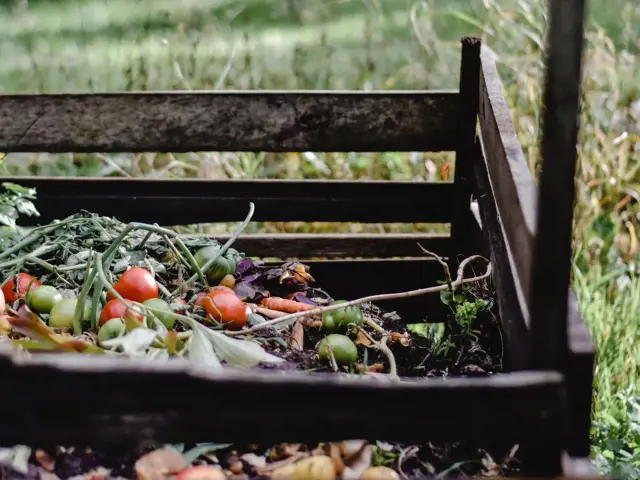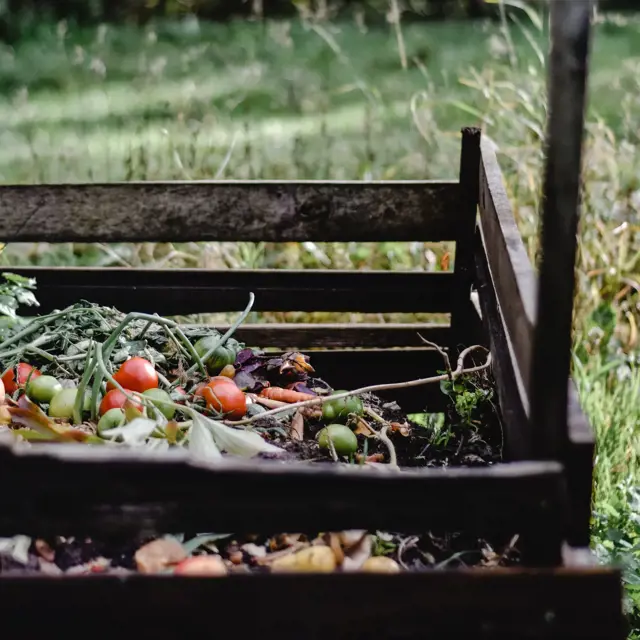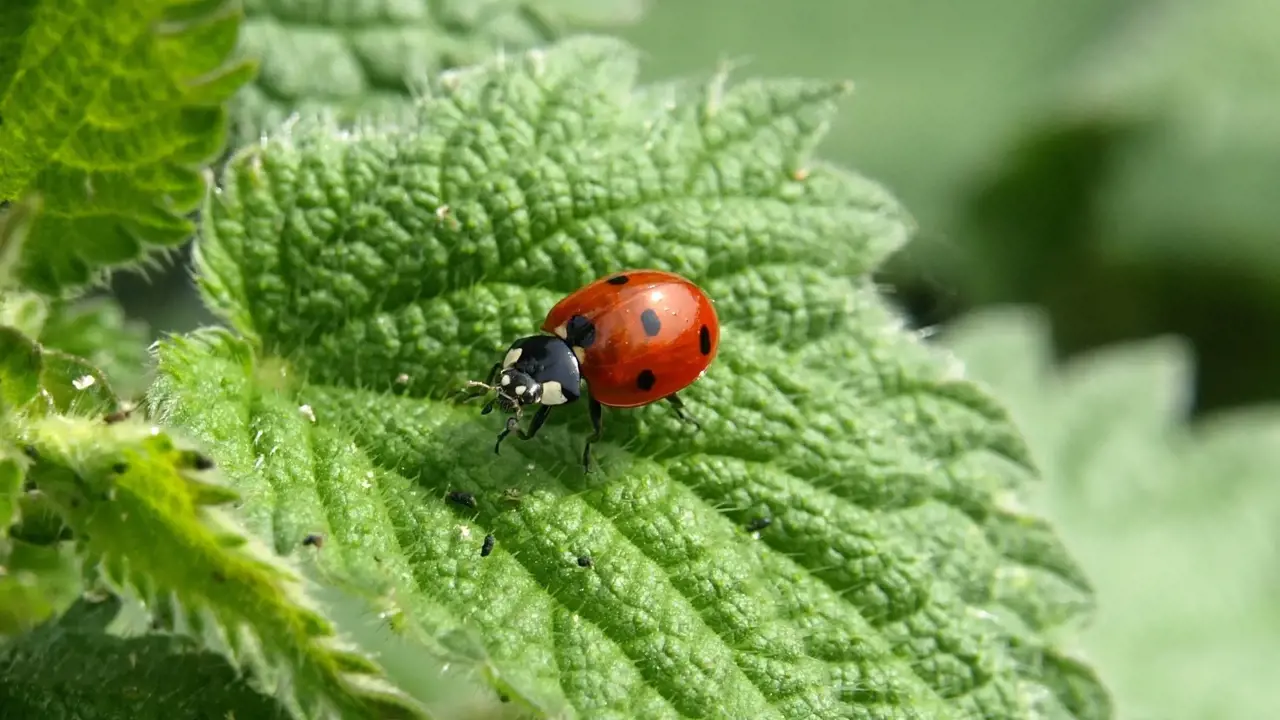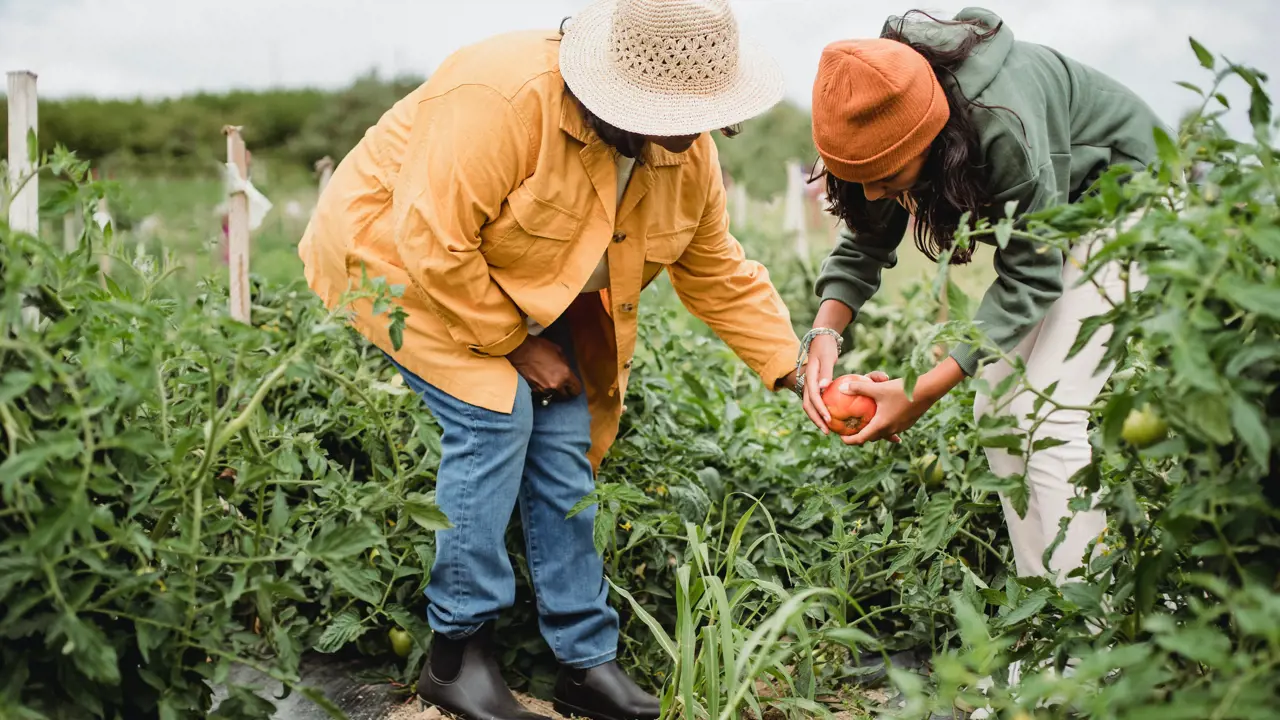The Benefits of Organic Gardening and How to Get Started
Unlock the secrets of a bountiful and sustainable garden with our comprehensive guide to organic gardening. Discover the joys of nurturing plants naturally, while promoting a healthier ecosystem and enjoying the fruits of your labor. Explore expert tips, eco-friendly practices, and product recommendations to embark on your organic gardening journey today!

Table of Contents
- Definition of Organic Gardening
- Health Benefits of Organic Gardening
- Environmental Benefits of Organic Gardening
- Getting Started with Organic Gardening
- Organic Pest and Weed Control
- Composting and Soil Enrichment
- Organic Fertilizers and Amendments
- Organic Garden Maintenance
- Harvesting and Enjoying the Fruits of Your Labor
- Sharing the Organic Gardening Experience
Are you interested in gardening while embracing an eco-friendly approach? Organic gardening is the perfect solution! In this article, we'll explore the numerous benefits of organic gardening and provide you with valuable insights on how to get started. By opting for organic gardening practices, you not only contribute to a healthier environment but also enjoy the satisfaction of growing your own nutritious produce. To help you on your organic gardening journey, we'll showcase a range of high-quality organic gardening products that can enhance your gardening experience.
Definition of Organic Gardening
Organic gardening is a method of growing plants without the use of synthetic chemicals, pesticides, or genetically modified organisms (GMOs). It revolves around utilizing natural techniques to promote plant health and soil fertility.
Organic gardeners focus on nourishing the soil by incorporating organic matter and using natural pest control methods. By avoiding harmful chemicals, organic gardening ensures that the food you grow is free from pesticide residues, making it safer and healthier for consumption.
With the increasing concerns about the impact of conventional agriculture on the environment and human health, organic gardening has gained popularity as a sustainable and environmentally friendly alternative.
Fact

Health Benefits of Organic Gardening
One of the key advantages of organic gardening lies in the health benefits it offers. When you cultivate your own organic garden, you have full control over what goes into your plants and, ultimately, onto your plate.
Unlike conventionally grown produce, which may contain traces of synthetic pesticides and chemical fertilizers, organic fruits, vegetables, and herbs are cultivated using natural methods. Research suggests that organic produce often contains higher levels of essential nutrients, such as vitamins, minerals, and antioxidants.
Furthermore, by avoiding exposure to harmful chemicals, organic gardening can contribute to reducing the risk of pesticide-related health issues. Embracing organic gardening not only promotes personal well-being but also encourages sustainable agricultural practices for a healthier planet.
Suggested Products
There are a lot of good and affordable products on the market to help you. We'll make it easier for you with our top picks on the market.
Environmental Benefits of Organic Gardening
In addition to the personal advantages, organic gardening offers numerous benefits for the environment. By avoiding the use of synthetic pesticides and fertilizers, organic gardeners help minimize soil and water pollution.
Synthetic chemicals from conventional gardening practices can leach into groundwater, rivers, and lakes, affecting aquatic life and ecosystems. Organic gardening, on the other hand, emphasizes natural methods of pest and weed control, reducing the potential harm to the environment.
Furthermore, organic practices promote biodiversity by providing habitats for beneficial insects, birds, and other wildlife. By embracing organic gardening, you become a steward of the environment, actively contributing to the conservation and sustainability of our planet.
Getting Started with Organic Gardening

Ready to embark on your organic gardening journey? Getting started is easier than you might think. Begin by selecting an appropriate location for your garden, ensuring it receives adequate sunlight and drainage.
Next, prepare the soil by removing weeds and incorporating organic matter such as compost or aged manure. These natural soil amendments enrich the soil, providing essential nutrients for your plants. Choose organic seeds or seedlings from reputable sources to ensure they are free from genetic modifications and chemical treatments.
Follow planting instructions and consider companion planting, a technique where compatible plants are grown together to maximize their benefits and deter pests. With a little patience and care, you'll soon witness the wonders of organic gardening firsthand.
Organic Pest and Weed Control
One of the cornerstones of organic gardening is the use of natural pest and weed control methods. Rather than relying on chemical pesticides, organic gardeners employ various techniques to manage pests and unwanted plant growth. Companion planting, for instance, involves strategically planting certain species together to repel pests or attract beneficial insects.
Biological controls, such as introducing predator insects like ladybugs or using nematodes to combat specific pests, can also be effective in maintaining a balanced ecosystem. Additionally, organic-approved sprays, derived from natural substances like neem oil or soap solutions, provide targeted pest control without harming beneficial organisms. By adopting these organic pest and weed control approaches, you can nurture a garden that thrives in harmony with nature.
Fact
Suggested Products
There are a lot of good and affordable products on the market to help you. We'll make it easier for you with our top picks on the market.
Composting and Soil Enrichment
Composting is an integral part of organic gardening, providing a sustainable and natural way to enrich the soil. Compost is created by decomposing organic materials such as kitchen scraps, yard waste, and leaves.
As it breaks down, compost releases valuable nutrients and beneficial microorganisms that enhance soil fertility, improve moisture retention, and promote healthy plant growth.
By incorporating compost into your garden beds or using it as a top dressing, you nurture a vibrant soil ecosystem that nourishes your plants and reduces the need for synthetic fertilizers. Start composting today and witness the transformative power of this black gold in your organic garden.
Tip
Suggested Products
There are a lot of good and affordable products on the market to help you. We'll make it easier for you with our top picks on the market.
Organic Fertilizers and Amendments
In organic gardening, the use of organic fertilizers and soil amendments is key to providing plants with essential nutrients.
Organic fertilizers, derived from natural sources like bone meal, kelp meal, or compost tea, nourish plants without introducing harmful chemicals into the environment. These organic alternatives promote slow and steady nutrient release, fostering long-term soil health.
Additionally, organic soil amendments such as vermicompost (worm castings), seaweed extracts, or rock powders contribute to soil structure, microbial activity, and nutrient availability. By utilizing these organic options, you can create a fertile and balanced growing environment for your plants.
Organic Garden Maintenance
Maintaining your organic garden involves a few essential practices to ensure the continued success of your plants. Adequate watering is crucial, providing plants with the right amount of moisture without overwatering or creating water stress.
Mulching around plants with organic materials, such as straw or wood chips, helps conserve soil moisture, suppress weeds, and moderate soil temperature. Crop rotation, the practice of changing plant locations each season, helps prevent disease buildup and maintain soil fertility. Regular observation, pest monitoring, and prompt intervention using organic pest control methods are also essential for a healthy organic garden.
By implementing these maintenance practices, you'll create an environment where your plants thrive naturally, allowing you to enjoy the bountiful rewards of your organic gardening journey.
Suggested Products
There are a lot of good and affordable products on the market to help you. We'll make it easier for you with our top picks on the market.
Harvesting and Enjoying the Fruits of Your Labor
After nurturing your organic garden with care and dedication, it's time to reap the rewards of your efforts. As your plants mature, harvest the fresh produce when it reaches its peak of ripeness.
Harvesting at the right time ensures the best flavor and nutritional value. Enjoy the satisfaction of picking your own organic fruits, vegetables, and herbs, knowing that they are free from harmful chemicals and pesticides.
Incorporate your homegrown organic harvest into delicious meals, salads, or preserves, savoring the unique flavors that only organic gardening can provide.

Sharing the Organic Gardening Experience

As you embark on your organic gardening journey, don't forget to share your knowledge and experiences with others. Organic gardening is a rewarding and sustainable practice that can benefit individuals and communities alike.
Share gardening tips, success stories, and even surplus produce with friends, family, or neighbors. Consider joining local gardening groups or volunteering at community gardens to connect with like-minded individuals and contribute to the promotion of organic gardening principles.
By sharing your passion, you inspire others to embrace organic gardening and collectively create a greener and healthier future.
Frequently Asked Questions
We understand that you may have questions about organic gardening and how it relates to your journey as a gardener. To provide you with clarity and guidance, we have compiled a list of frequently asked questions about organic gardening. Explore the answers below to gain a deeper understanding of the principles, practices, and benefits of organic gardening.
Organic gardening is a method of cultivating plants without using synthetic chemicals, pesticides, or genetically modified organisms (GMOs). It focuses on promoting soil health, biodiversity, and sustainable practices.
Organic gardening offers numerous benefits such as healthier and safer food, reduced environmental impact, improved soil fertility, and the preservation of beneficial insects and wildlife.
Start by selecting an appropriate location, preparing the soil with organic matter, choosing organic seeds or seedlings, and implementing natural pest and weed control methods. Incorporate composting and sustainable practices for long-term success.
While some organic products may have a slightly higher price, the long-term benefits and reduced environmental impact outweigh the initial cost. Additionally, many cost-effective organic solutions can be implemented, such as making your own compost.
Absolutely! Organic gardening principles can be applied to indoor plants. Choose organic potting soil, organic fertilizers, and natural pest control methods to maintain a healthy indoor garden.
Organic pest control involves techniques like companion planting, using beneficial insects, practicing crop rotation, employing physical barriers, and using organic-approved sprays derived from natural substances.
Yes, organic gardening can be adapted to small spaces. Container gardening, vertical gardening, and utilizing window boxes are excellent options for growing organic herbs, vegetables, and flowers in limited spaces.
Absolutely! Many fruits and vegetables can be grown successfully in pots or containers. Just ensure the containers have proper drainage, use organic potting soil, and provide adequate sunlight and care.
Yes, organic gardening offers a wide range of natural alternatives, including compost, worm castings, seaweed extracts, bone meal, and various organic fertilizers. These options nourish plants while maintaining soil health.
Look for local organic gardening associations, community gardens, or online platforms dedicated to organic gardening. Additionally, books, websites, and forums provide valuable information, tips, and support for organic gardeners.
Other articles
We frequently post new articles that might be of interest to you. Here is a small selection.





